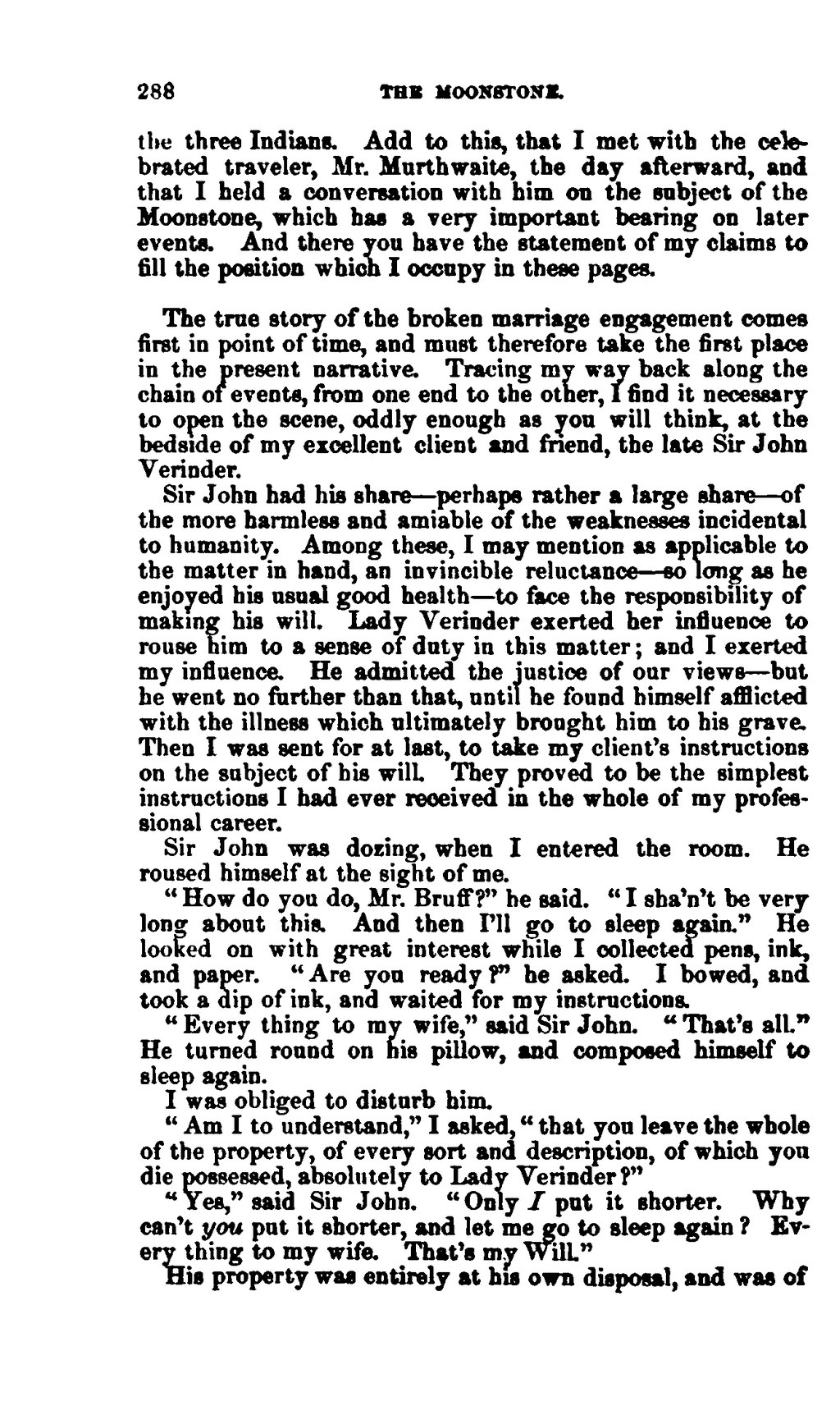the three Indians. Add to this, that I met with the celebrated traveller, Mr. Murthwaite, the day afterwards, and that I held a conversation with him on the subject of the Moonstone, which has a very important bearing on later events. And there you have the statement of my claims to fill the position which I occupy in these pages.
The true story of the broken marriage engagement comes first in point of
time, and must therefore take the first place in the present narrative.
Tracing my way back along the chain of events, from one end to the
other, I find it necessary to open the scene, oddly enough as you will
think, at the bedside of my excellent client and friend, the late Sir
John Verinder.
Sir John had his share—perhaps rather a large share—of the more harmless and amiable of the weaknesses incidental to humanity. Among these, I may mention as applicable to the matter in hand, an invincible reluctance—so long as he enjoyed his usual good health—to face the responsibility of making his will. Lady Verinder exerted her influence to rouse him to a sense of duty in this matter; and I exerted my influence. He admitted the justice of our views—but he went no further than that, until he found himself afflicted with the illness which ultimately brought him to his grave. Then, I was sent for at last, to take my client's instructions on the subject of his will. They proved to be the simplest instructions I had ever received in the whole of my professional career.
Sir John was dozing, when I entered the room. He roused himself at the sight of me.
"How do you do, Mr. Bruff?" he said. "I sha'n't be very long about this. And then I'll go to sleep again." He looked on with great interest while I collected pens, ink, and paper. "Are you ready?" he asked. I bowed and took a dip of ink, and waited for my instructions.
"I leave everything to my wife," said Sir John. "That's all." He turned round on his pillow, and composed himself to sleep again.
I was obliged to disturb him.
"Am I to understand," I asked, "that you leave the whole of the property, of every sort and description, of which you die possessed, absolutely to Lady Verinder?"
"Yes," said Sir John. "Only, I put it shorter. Why can't you put it shorter, and let me go to sleep again? Everything to my wife. That's my Will."
His property was entirely at his own disposal, and was of
